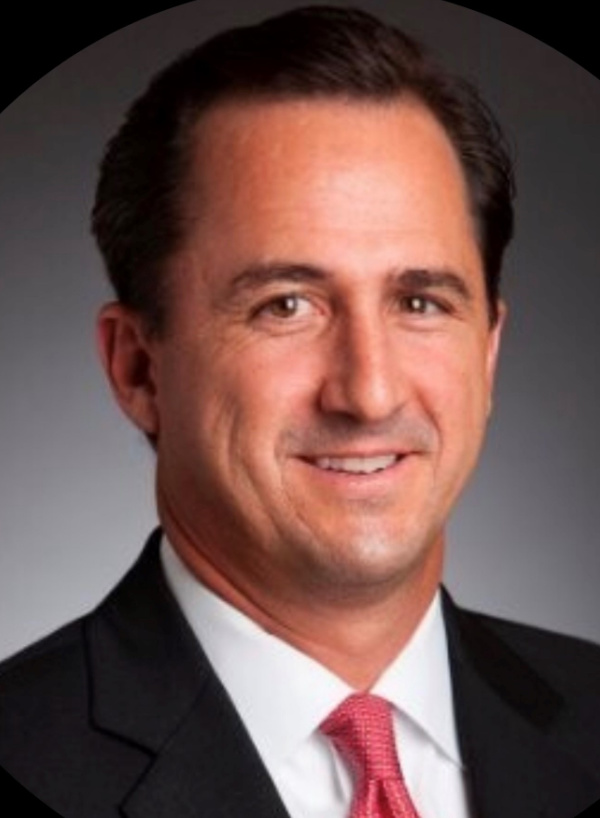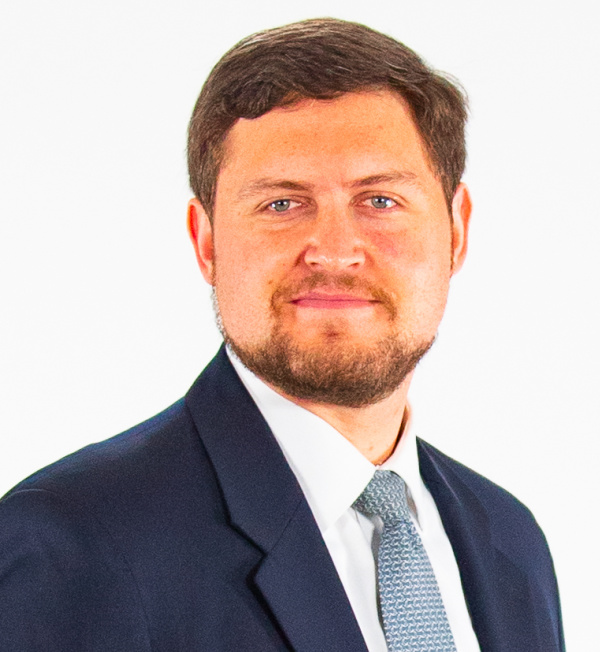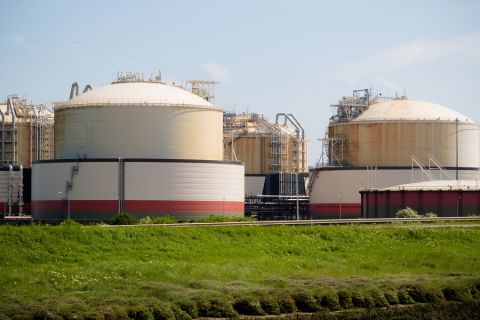
(Source: Shutterstock.com)
[This story first appeared in Oil and Gas Investor's Capital Options supplement in October 2020. Subscribe to the magazine here.]
Amid depressed valuations and declining exits, deal activity in the energy sector was already experiencing a slowdown over the past few years. But the current downturn—one of the worst in the history of oil and gas—has left capital providers grappling. However, despite significant slowdown in deal activity, several private-equity investors have managed to close new funds while others are looking at new ways to take advantage of potential investment opportunities.
Beating the odds

—Phillip A. Gayle Jr., Andros Capital Partners
Houston-based Andros Capital Partners LLC closed its inaugural $250 million fund in August to target investments across the energy sector. The firm is considering “private-equity investments, credit opportunities and direct asset-level investments” for the Andros Energy Capital LP fund, which is primarily focused on middle-market transactions requiring between $25 million and $200 million of equity.
“This has historically been an under- served portion of the market and really below the radar of what makes sense for many of the larger, more established fund complexes out there, particularly on the credit side,” said Phillip A. Gayle Jr., founder and managing partner of Andros Capital Partners, which he established earlier this year.
“One of the unique features of our fund is the ability to pursue private-equity investments, credit opportunities and direct, asset-level investments. Having the ability to invest across the capital structure allows us to be creative and focus on the specific needs of both public and private energy companies as we structure and scale investments,” he said. Having completed the fund recently, the firm hasn’t closed on any investments yet but is currently eyeing multiple prospects across multiple domestic basins. “We have the ability to be opportunistic,” Gayle said. “Upstream and mid- stream assets or companies are our primary focus. Our firm comprises investment professionals and energy entrepreneurs who have spent their entire careers as energy investors, asset managers and operators. So we fundamentally understand the business. We feel that creates a differentiated perspective as an investor and as a capital partner.”

—Matt Kelly, Carnelian Energy Capital
Gayle noted that fundraising has become more difficult in the current environment, especially since the onset of the global pandemic. “I think most people would prefer to meet with a potential capital partner in person and that is much tougher if not impossible given the current situation,” he said.
Capital isn’t flowing either, as company balance sheets remain stressed and the A&D market is hobbled by a wide bid-ask spread. “Currently, there is an extreme lack of capital flowing into the energy sector at a time when balance sheets are stressed and the A&D market is really slow,” Gayle continued. “Some companies, which you would think would be motivated sellers, are unwilling to sell assets at a valuation that makes sense to buyers in the current commodity price environment. So the bid-ask spread has prevented transactions that probably should get done from happening. That being said, we believe oil and gas prices will remain relatively depressed in the near-to-medium term, which should lead to more consensus on asset valuations and drive additional deal flow.”
Recapitalization opportunities
Carnelian Energy Capital is a Houston-based investment firm focused on equity investments in the North American energy space. The company has raised approximately $1.8 billion since 2015, including its third fund, which closed in 2019 at its hard cap of $786.25 million.
Matt Kelly, vice president with Carnelian Energy, said the firm is spending significant time reviewing recapitalization opportunities for companies going through the bankruptcy process as well as evaluating asset sales from reemerged companies.
“Bankruptcy processes take time and typically include various stakeholders and viewpoints, so picking your spots is important,” he said. “We are also spending time providing capital solutions to healthy companies who find themselves with limited access to capital in today’s environment but who have accretive opportunities such as bolt-on acquisitions, core locations to drill or who simply want to delever balance sheets. And finally, we continue to spend time on traditional A&D. Even as the volume and pace of deal flow has slowed in 2020, we have been able to execute on several bolt-on acquisitions at attractive valuations that further enhance our existing assets.”

—Ben Davis, Energy Spectrum Capital
To date, Carnelian Energy has made 18 platform investments and most are wholly-owned and controlled by Carnelian and management, but the investment firm is open to other capital solutions, including structured equity and debt.
“Our overarching strategy centers on partnering with entrepreneurial management teams to pursue attractive risk-reward investment opportunities, and that core tenet remains unchanged. Having said that, the current environment presents additional avenues to capture opportunities with both our existing portfolio company partners as well as companies that we are not currently affiliated with,” Kelly explained.
Reflecting on some recent trends of the oil and gas industry, he said the reserve-based lending market is definitely evolving.
“While several historically active lenders have left the space or meaningfully reduced exposure, the remaining participants have high-graded capital availability to a select few companies with top- tier teams and capital providers,” he said. “We think this will actually create more stability in our industry over the long run and provide exciting opportunities for equity to flow to well-run companies who are focused on creating sustainable returns through operations and drilling and not through leverage.”

—Jeff Bartlett, Pontem Energy Capital
Discussing the company’s future projects, Kelly said, “We’ve recently re-partnered with the management teams of two of our previously exited companies, Bison Oil and Gas and Percussion Petroleum, and we are honored to have the opportunity to be in business with those teams again. We also recently partnered with John Oberg and Marc Shatzer to form Hawthorne Energy. We have known the Hawthorne principals for years and watched their success at Three Rivers Operating II and III closely and are excited about our partnership with them. More generally, we have more than $1 billion of unfunded capital and are looking to play offense in what we believe is a reemerging and growing opportunity set within the upstream space.”
Navigating the downturn
In April 2020, Energy Spectrum Capital, a Dallas-based venture capital firm focused on energy infrastructure, closed its eighth midstream venture capital fund (ESP VIII), amounting to $969 million, which the firm is currently investing.
Ben Davis, partner at Energy Spectrum, said ESP VIII has committed to five portfolio companies to date including funding for a crude gathering project. “We have backed teams including Frontier Energy Services, Taproot Energy Partners, Pinnacle Midstream and our newest investment, Tivoli Midstream, which is looking at opportunities in the terminal space.”
He added that the firm is eyeing more renewable deals as well.
Despite the current low-price environment, the firm intends to “profitably navigate the market volatility and build another strong portfolio.” The investment firm sees potential for acquisitions that could ripen in the midstream space as companies struggling with high debt are under increasing pressure to sell off assets to pay down debt.
Davis noted that the firm’s investment strategy has not changed materially in the past few months.

—Skye Callantine, Pontem Energy Capital
“We continue to back highly experienced teams and focus on the basins with the lowest development and production costs,” he said. “In Energy Spectrum’s 25 years, we have learned that those teams and reserves are best positioned to weather price downturns.” Davis continued, “I think there has been a lack of divestiture activity, which is leading equity investors like us to think about how to hold on to investments longer until the exit markets open back up again. And the upstream exit market is even slower than midstream. One thing that we have observed in the current downturn that is quite different than the financial crisis of 2008 is that there continues to be attractive debt available for energy infrastructure. I wouldn’t say capital is cheap but reasonably priced, and providers are partner-minded.”
Challenging times
“LP [limited partnership] capital formation for energy-specific investment funds has rarely been more challenged,” said Jeff Bartlett, managing partner with Pontem Energy Capital, which he co-founded earlier this year with partners Cameron Brown and Skye Callantine. Pontem is dedicated to providing alternative capital and operations solutions to public and private energy companies, investing across the capital structure while providing value-added operational expertise.
Bartlett said energy underperformance relative to non-energy sectors over the past several years has led to an “outright revolt from LPs against blind pool capital raise” for energy funds.
“Only a select few GPs [general partnerships] have been able to raise dedicated energy funds over the past few years,” he said. “The recent pandemic caused a demand side shock that led to lower commodity prices, a historic reduction in domestic rig activity and ultimately a large number of upstream companies seeking Chapter 11 protection. Pontem seeks to provide capital and operations improvement options for many of these distressed energy companies that have attractive, low breakeven assets.”

—Cameron Brown, Pontem Energy Capital
Reflecting on the recent trends in the capital markets, Bartlett noted, “Due to the challenging outlook for LP fundraising, most remaining private-equity capital is reserved for existing portfolio companies’ balance sheets in order to extend the liquidity runway and increase the odds of exposure to a more constructive exit environment.”
Highlighting current public market sentiment toward energy, Pontem co-founder Brown said, “Public investors no longer reward growth but instead allocate capital toward the most efficient companies that show a clear ability to generate returns above their cost of capital in a mid-cycle oil price environment. Given less rig activity and growth, investors are seeking GPs that place significant emphasis on right sizing both the financial and operational sides of the ledger to achieve an investment profile that competes in absolute returns rather than just within oil and gas.”
He added, “The capital markets, including high yield, remain wary of all but the most creditworthy upstream companies and, due to stress within existing portfolios, only a few energy-dedicated investors remain open for new business.”
Discussing the firm’s future plans, co-founder Callantine said Pontem has lined up a large capital commitment from a leading institutional investor that provides for a broad, flexible mandate that is intended to enable Pontem to capitalize on the dynamism of the current energy investment landscape. Pontem expects to provide either targeted or holistic capital solutions and to work with existing management teams to optimize its capital structure from top to bottom, including through new money common equity.
He further noted that as upstream companies focus more on cash flow generation with minimal development, Pontem will look to invest opportunistically, focusing on the technical team’s capabilities to identify assets and businesses in need of cost structure, capital structure or balance sheet improvements. “We plan to identify investments in larger upstream companies seeking liquidity enhancement solutions in an otherwise difficult capital markets environment,” Callantine said. “Pontem will continue to develop relationships with our LPs to enhance access to capital that can be allocated to the most attractive energy investments through a very flexible mandate including equity and debt, gas and oil, and whether actively operated or through passive investments aligned with existing management teams.”
Recommended Reading
Exxon’s Payara Hits 220,000 bbl/d Ceiling in Just Three Months
2024-02-05 - ExxonMobil Corp.’s third development offshore Guyana in the Stabroek Block — the Payara project— reached its nameplate production capacity of 220,000 bbl/d in January 2024, less than three months after commencing production and ahead of schedule.
Venture Global, Grain LNG Ink Deal to Provide LNG to UK
2024-02-05 - Under the agreement, Venture Global will have the ability to access 3 million tonnes per annum of LNG storage and regasification capacity at the Isle of Grain LNG terminal.
What's Affecting Oil Prices This Week? (Feb. 5, 2024)
2024-02-05 - Stratas Advisors says the U.S.’ response (so far) to the recent attack on U.S. troops has been measured without direct confrontation of Iran, which reduces the possibility of oil flows being disrupted.
McKinsey: US Output Hinges on E&P Capital Discipline, Permian Well Trends
2024-02-07 - U.S. oil production reached record levels to close out 2023. But the future of U.S. output hinges on E&P capital discipline and well-productivity trends in the Permian Basin, according to McKinsey & Co.
EIA: Oil Prices Could Move Up as Global Tensions Threaten Crude Supply
2024-02-07 - Geopolitical tensions in the Middle East and ongoing risks that threaten global supply have experts questioning where oil prices will move next.





